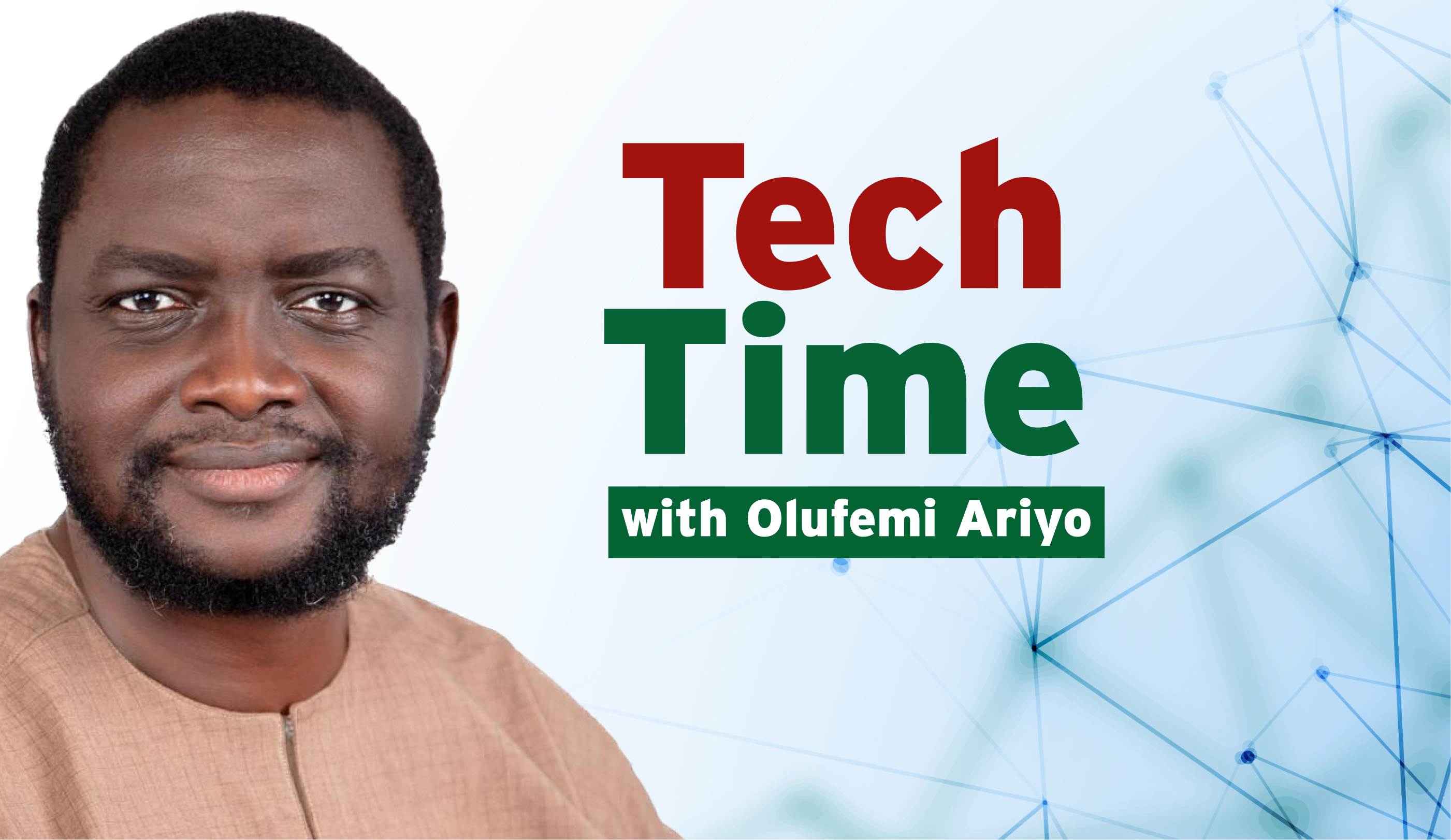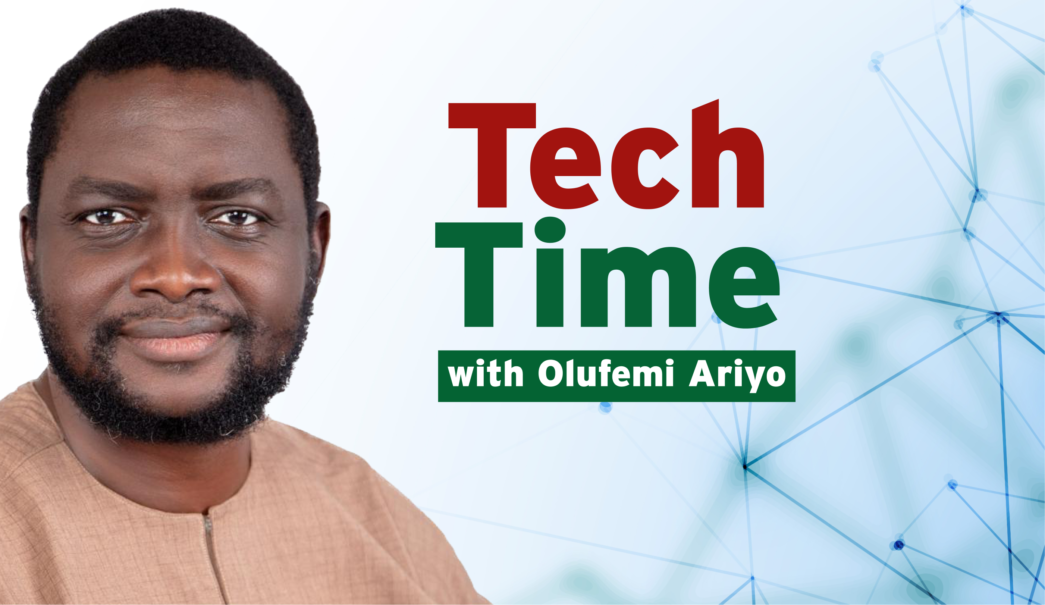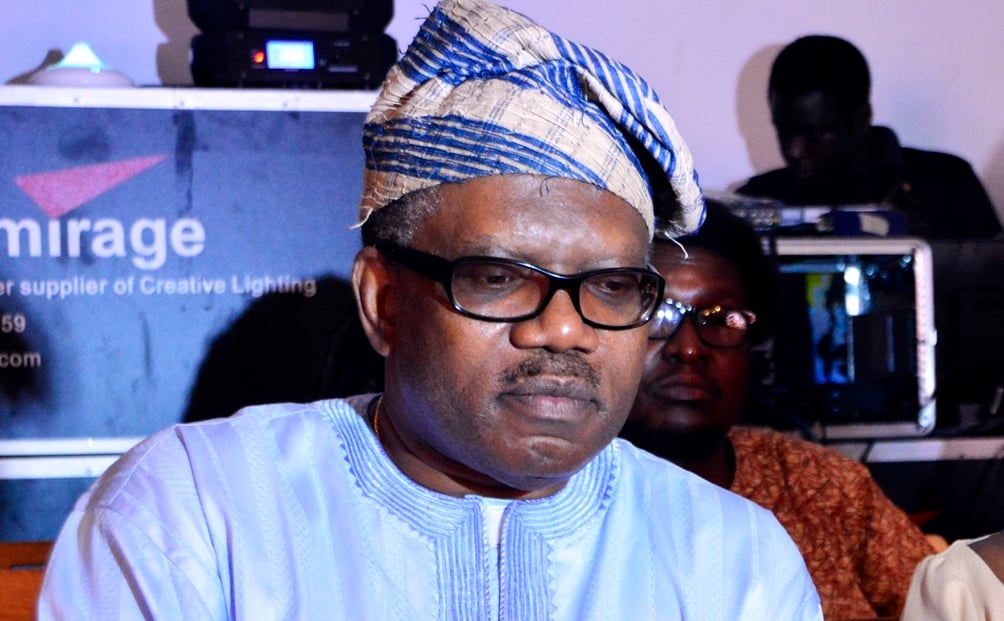“Data is the new oil” — a phrase once provocative, now overused and oversimplified. Yet in Africa, the metaphor still holds weight, not because of the resource itself, but because of the dynamics it reveals: Who is extracting the data? Who controls the infrastructure? Who benefits from its value? And do the people even know their data is being mined, traded, and weaponised?
As we accelerate into an increasingly digital future, data has become the invisible scaffolding of modern African life — quietly underpinning public services, financial inclusion, health systems, education, and even political participation. We see biometric ID programs and digital payment platforms, even AI-powered agriculture and remote learning tools. All point to the fact that technology is rapidly permeating every facet of society.
But this rapid digitisation is unfolding in an environment largely unprepared for its ethical, political, and cultural implications. Most African countries lack strong data protection frameworks, robust digital rights laws, and localised governance models. Meanwhile, foreign platforms dominate digital infrastructure, leaving Africans with limited control over how their data is used, stored, or monetised.
At the heart of this technological transformation lies a deeper crisis, a deficit of digital trust. Citizens increasingly depend on systems they neither understand nor believe in. And where trust erodes, participation withers, innovation stalls, and democracy itself is put at risk. This article delves into the critical intersections of digital trust and data sovereignty in Africa, examining the consequences of mistrust, the dangers of digital dependency, and the path toward building systems Africans can truly believe in.
Advertisement
The Cost of Digital Distrust
When citizens do not trust the digital systems meant to serve them, everything begins to unravel. All includes access and adoption, economic inclusion, institutional credibility, and even democratic participation. Trust is the currency of digital transformation, and without it, innovation becomes exclusionary, fragile, and even dangerous. Take Nigeria’s National Identity Management Commission (NIMC) as a case in point. The introduction of the National Identification Number (NIN) was envisioned as a cornerstone for modernising service delivery — enabling everything from social welfare disbursement to SIM card registration and financial inclusion. Yet, despite the massive rollout campaigns and mandatory policies, public trust in the system remains low.
Advertisement
Why? A combination of opaque data collection processes, poor communication, inadequate infrastructure, and a lack of legal clarity on data protection. Many Nigerians are unsure where their biometric data goes, who has access to it, or how it might be used — especially in a context where surveillance, identity theft, and state overreach are not abstract fears but lived realities. This lack of confidence has led to reluctance, incomplete registration, widespread misinformation, and ultimately, exclusion of vulnerable populations — particularly those in rural areas, the informal economy, or without access to mobile or digital literacy.
In the health sector, similar patterns emerge. The potential of digitised health records (which offers faster diagnoses and more efficient patient management) is being undermined by fears around confidentiality and stigma, especially in sensitive areas such as HIV treatment, mental health, reproductive services, or chronic disease management. In environments where discrimination and social ostracism are real threats, data sensitivity is not just about privacy, it is about survival. Without strong assurances of data security and patient rights, people opt out, or delay seeking care, eroding public health outcomes and institutional legitimacy.
In financial services, Nigeria is hailed as a fintech powerhouse, with platforms like Flutterwave, Paystack, Currex, and Opay making financial services more accessible than ever. However, digital distrust remains a key barrier to financial inclusion. For many (especially older generations, rural dwellers, and those with limited digital literacy), the fear of fraud, cyberattacks, system glitches, or simply not understanding how platforms work drives a preference for cash-based transactions. And these fears are not unfounded — reports of mobile banking failures, unauthorised debits, and online scams are common. Where recourse mechanisms are weak and customer support unreliable, distrust spreads virally.
But the cost of digital distrust goes far beyond individual inconvenience. It has system-wide consequences:
Advertisement
- Low adoption of e-government platforms leads to inefficient public service delivery and continued reliance on costly, analog systems.
- Incomplete datasets weaken the accuracy and equity of policy decisions, ranging from healthcare planning to social safety nets.
- Reduced citizen participation in digital governance means critical decisions (such as surveillance laws and even AI adoption) are made without public input or oversight.
- Trust gaps exacerbate inequality, as only the digitally literate and connected benefit from innovation, while others fall further behind.
In a continent where digital transformation is often touted as the key to leapfrogging development, failing to address the trust deficit turns this promise into a peril. Digital innovation without public trust is not progress — it is a trap.
Moreover, the most severe consequences of this distrust often fall upon those already marginalised — the poor, the elderly, women, youth in informal economies, persons with disabilities, and ethnic minorities. When systems are distrusted, these groups are the first to disengage, and the last to be heard or served.
If Africa is to harness the full potential of its digital revolution, building trust must be treated not as a soft issue, but as a strategic imperative. That means prioritising transparency, establishing legal safeguards, educating the public, and ensuring accountability. This is so because when digital trust is low, it is not just innovation that suffers. Democracy, equity, and dignity suffer too.
Advertisement
Whose Algorithm? Whose Values?
It is noteworthy to say that algorithms are the new gatekeepers. They determine who gets hired, what information is seen, how services are prioritised, and even what voices are amplified or silenced. But while these systems are powered by data, they are governed by something less visible — values. And here lies the critical challenge: much of the digital infrastructure Africa relies on is designed elsewhere — built by multinational corporations or foreign governments with economic, cultural, and political priorities that do not always align with African realities. These platforms may be technically impressive, but they are ideologically embedded with assumptions about what constitutes value, truth, relevance, and legitimacy.
Advertisement
Take, for example, AI-driven recruitment platforms increasingly used by multinational firms in Africa. These systems often prioritise:
- Western-style formatting and phrasing of CVs,
- Degrees from European or American institutions,
- Certain linguistic patterns or cultural markers as signs of “”
The result? Highly qualified local candidates may be filtered out long before a human ever sees their profile, simply because their credentials do not fit an algorithm trained on a different social and educational context.
Advertisement
Or consider social media algorithms, designed to maximise engagement and profit through virality. In many African countries, these platforms have become the default space for political discourse, community organising, and cultural expression. Yet the algorithms that curate timelines and trends are:
- Optimised for outrage and sensationalism,
- Poor at detecting local dialects, slang, or satire,
- Slow to respond to regional misinformation or hate speech.
The consequences are serious: amplified misinformation, political polarisation, cultural flattening, and in some cases, violence. These platforms may claim neutrality, but their design choices (what they reward, suppress, or ignore) actively shape public discourse and societal norms.
Advertisement
Furthermore, these systems are not neutral. They carry the worldviews of their creators. Every algorithm is a series of choices (about what to prioritise, who to trust, what to ignore) made by people with specific worldviews, working within specific commercial and cultural frameworks.
In Africa’s context, where diversity is the default (linguistically, ethnically, economically, and historically), these imported systems often fail to account for local nuance. For example:
- Language models that struggle with African languages or dialects, rendering many users invisible.
- Facial recognition technologies that misidentify or fail to detect darker skin tones, with real implications for policing and security.
- Educational platforms that assume access to broadband or nuclear families, ignoring realities like shared devices, poor connectivity, or communal learning.
The question, then, is not just technical — it is moral and political:
Who decides what matters in our data? Who decides what is valuable, visible, or valid?
When foreign-built systems dominate African digital ecosystems, they subtly (and sometimes overtly) impose external values, privileging certain ways of seeing, knowing, and living over others. This is not simply a mismatch of code, rather a clash of worldviews. And when African lives are filtered through alien lenses, the risk is not just misrepresentation, but marginalisation. This is the new frontier of digital colonialism — control not of land, but of logic; not of borders, but of behaviours; not of resources, but of relevance.
If Africa continues to consume without creating, it risks becoming a passive participant in a digital economy that extracts data and imposes values, while offering little in return. Local realities (such as rural contexts, indigenous knowledge, communal norms, multilingual diversity) are rendered invisible, because they do not fit neatly into a Silicon Valley schema. But it does not have to be this way.
To reclaim digital agency, Africa must become a producer (not just a user) of algorithmic systems. That means investing in:
- Local AI research, trained on African data and led by African ethicists and technologists.
- Tech regulation that centres contextual equity, not just market competition.
- Civic engagement in platform governance, so communities can push back when systems do harm.
- Education in critical digital literacy, so youth can question (not merely consume) the platforms they use daily.
The future must not be one where African lives are constantly optimised for someone else’s profit or perception. Instead, it must be one where African communities define the values embedded in their technologies — and in doing so, shape digital systems that reflect, respect, and respond to who they truly are.
Youth & Data Colonialism
Africa’s youth are more connected, more online, and more digitally expressive than any generation before. Armed with smartphones and cheap data bundles, they are streaming, sharing, scrolling, creating, and coding their way into the future. Whether on TikTok, WhatsApp, YouTube, Instagram, mobile games, or ed-tech platforms, they are leaving behind enormous digital footprints — often without a full understanding of the trails they are blazing or the terrain they are navigating. But here is the troubling part: they are not in control of the data they generate.
Every selfie uploaded, voice note sent, payment made, or location shared feeds into systems designed far beyond their borders — often in California, Singapore, or Beijing. These platforms are not neutral intermediaries; they are data extraction machines, governed by opaque algorithms and optimised to capture attention, predict behavior, and sell influence. Africa’s youth, with their sheer numbers and growing purchasing power, have become prime sources of raw data — harvested with minimal transparency, little consent, and no meaningful recourse. This is not simply a privacy issue. It is a sovereignty issue. It is a power issue.
Further implications of this is that, data generated in Lagos or Kampala is often stored on servers in Europe, processed in cloud infrastructure owned by U.S. tech giants, and monetised through advertising engines that benefit foreign shareholders. Meanwhile, the same data is used to train algorithms — powering everything from consumer profiling to AI models — that may never serve the communities from which the data originated.
Worse still, in many cases, the digital ecosystems that dominate youth engagement are designed for extraction, not empowerment:
- Educational platforms collect learning data without clear policies on data ownership or ethical use.
- Gaming apps harvest behavioural data to engineer addiction and monetisation, not learning or well-being.
- Social media platforms amplify trends that may drive engagement, but often at the expense of local culture, mental health, or informed civic discourse.
In this landscape, African youth risk becoming a data-rich but power-poor generation — highly visible online, yet structurally invisible in decision-making. They are quantified but unheard, measured but not represented, and increasingly profiled but not protected. This is the modern face of data colonialism: a system where Africa supplies the data, but others define the value, reap the benefits, and set the rules.
The implications are far-reaching:
- Economic exclusion: Youth may be scored, ranked, or filtered by opaque algorithms in job recruitment, loans, or housing — with no insight into how these decisions are made.
- Cultural distortion: Algorithms trained on non-African data prioritise globalised aesthetics and narratives, subtly undermining local cultures and reinforcing foreign ideals of success, beauty, or relevance.
- Behavioural manipulation: Data-fuelled algorithms shape what youth see, think, and believe — often without them knowing. From political messaging to viral misinformation, their agency is being eroded beneath the surface of convenience and connection.
The question we must urgently ask is this: Are we building a future of digital freedom — or a new form of digital servitude?
If data is power, then ownership and agency over that data must become non-negotiable rights for Africa’s youth. It is not enough to train them in digital skills; we must also empower them to question the systems they engage with, demand accountability from tech platforms, and participate in shaping the rules of their digital lives.
That means:
- Enforcing data protection laws that enter the rights of young users and hold foreign platforms accountable.
- Building homegrown platforms with ethical defaults and Afrocentric values.
- Integrating digital rights and literacy into education, so young people understand how their data is used — and misused.
- Creating mechanisms for youth participation in tech policy, regulation, and platform governance.
Africa’s demographic dividend (its young population) is often touted as the continent’s greatest asset. But if we fail to protect their digital autonomy, we may be nurturing a generation that is connected, creative, and highly commodified — but profoundly disempowered. Digital inclusion must mean more than just access. It must mean agency.
Digital Democracy or Digital Authoritarianism?
Across Africa, governments are embracing digital transformation at unprecedented speed — launching biometric ID programs, automating welfare distribution, digitising voter rolls, deploying e-governance platforms, and expanding surveillance infrastructure under the banner of national security or service delivery. The COVID-19 pandemic only accelerated this trend, catalysing remote education, digital healthcare, and contact tracing technologies across the continent.
On the surface, this push toward digitisation is a welcome shift — offering the promise of greater efficiency, broader inclusion, and improved accountability in governance. But underneath the innovation lies a pressing and uncomfortable question: Are we building digital democracies — or sleepwalking into digital authoritarianism? The warning signs are already here.
In countries like Nigeria, Uganda, Ethiopia, Sudan, and Zimbabwe, governments have used internet shutdowns or social media blackouts during elections, protests, or civil unrest — effectively silencing dissent, disrupting activism, and undermining democratic engagement. These digital blackouts, often justified on grounds of national security or “public order,” have become a blunt tool for political control in the digital age.
At the same time, the deployment of facial recognition technologies, license plate tracking, and mass surveillance tools — often without public knowledge, consent, or regulation — is raising serious concerns. Citizens are increasingly being watched, logged, and profiled in public spaces, often with no transparency around who collects their data, how long it’s stored, or what it’s used for. Worse, these technologies are often sourced from foreign actors with little oversight and deployed in legal vacuums, enabling abuse by state actors and weakening civil liberties. Who controls the switch? Who owns the servers? Who protects the people from the state — when the state controls the data? In such a context, digitisation without accountability does not advance democracy — it undermines it.
Consider how national ID systems, in the absence of strong privacy laws, can be weaponised to exclude certain ethnic or political groups from accessing services. Or how predictive policing tools, powered by biased data, can reinforce systemic discrimination. Or how social media monitoring can chill free expression, as citizens begin to self-censor in fear of reprisal or harassment. These are not speculative threats — they are happening now. And while the private sector is often (rightfully) critiqued for surveillance capitalism, the growing trend of state-led surveillance without democratic safeguards must be equally scrutinised. To avoid a future where African democracies become digitally enabled autocracies, urgent steps are needed.
What does digital democracy really require?
- Transparent Governance
Citizens must know what technologies are being used, how decisions are being made, and who is accountable when things go wrong. Transparency must be built into every layer of digital infrastructure — from procurement to deployment. - Strong Legal Safeguards
Data protection laws — like Nigeria’s NDPR or Ghana’s Data Protection Act — must not be toothless. They need proper enforcement, independent regulators, and legal clarity on the rights of citizens and the limits of state power. - Independent Oversight
Civil society, media, academia, and public watchdogs must have access to the tools and information necessary to audit digital systems, challenge misuse, and hold governments to account. No digital system should operate without checks and balances. - Public Digital Literacy
A digitally literate citizenry is essential. People must understand their rights, recognize manipulation, question official narratives, and participate meaningfully in tech-related policy debates. Without digital literacy, transparency is useless — and manipulation is easy. - Civic Participation in Tech Design
Civic tech movements, open data platforms, and citizen feedback loops must become part of how digital services are built and evaluated. Citizens must not be passive users of government platforms — they should be co-creators and critics. - Democratised Infrastructure
Who owns the infrastructure matters. If critical data centres, cloud platforms, or national databases are controlled by a handful of actors — whether governments or foreign tech companies — then control over public life becomes dangerously centralised.
The stakes are high.
If African states continue to digitise without democratising, they risk creating systems that are faster and more efficient — but also more oppressive and less accountable. In such a scenario, technology will not close the gap between governments and citizens; it will only automate inequality and deepen mistrust. Digital democracy is not just about better apps or smarter services. It is about power. It is about ensuring that the shift to digital governance enhances rights, not erodes them. That technology empowers citizens, not just bureaucracies. That innovation serves the public good — not political survival.
We must therefore be vigilant and intentional. The same digital tools that can expand civic participation, increase government responsiveness, and promote inclusion — can just as easily be used to monitor, manipulate, and marginalise. Africa’s digital future must be both connected and free, efficient and ethical, innovative and inclusive. It is time to choose — not merely what we build, but how, and for whom.
Local Innovation, Global Standards
Amid rising concerns about digital colonialism, data exploitation, and authoritarian drift, Africa stands at a critical crossroads. The challenges are real — but so is the opportunity. Africa doesn’t need to follow the world’s digital path — it has the chance to forge its own. A path rooted in local realities, informed by historical lessons, and driven by ethical innovation.
Rather than being passive adopters of foreign technologies or reactive participants in global policy frameworks, African nations can become norm-setters, innovators, and thought leaders in shaping digital ecosystems that reflect the continent’s values, aspirations, and diversity.
At the heart of this potential lies Nigeria — Africa’s most populous nation, and arguably its most dynamic tech hub.
With a young, creative, and digitally native population, a growing cohort of tech entrepreneurs, and increasing political interest in digital governance, Nigeria is uniquely positioned to lead a continental shift toward sovereign, ethical, and inclusive digital systems.
But leadership won’t emerge from rhetoric alone. It will require intentional investment and bold vision across five interconnected pillars:
- Afrocentric Design Thinking
Too many platforms in Africa are poorly localised copies of Western tools — built elsewhere, for someone else’s problems, and retrofitted into African contexts. What is needed is a move toward Afrocentric design: platforms and technologies that are:
- Built in local languages,
- Reflective of indigenous knowledge systems,
- Tailored to community realities (e.g., shared devices, low bandwidth, oral communication norms),
- Respectful of African social structures and cultural nuance.
From UI/UX design to back-end architecture, tech must emerge from within African lived experience, not be imposed on it. This approach isn’t just about cultural relevance — it’s about effectiveness and dignity.
- Strong Data Protection Frameworks
Nigeria’s NDPR (Nigeria Data Protection Regulation) was a step in the right direction — a sign that local policy makers recognise the importance of data sovereignty. But regulation without enforcement is symbolic at best.
What’s needed now is:
- A comprehensive data protection law that aligns with global standards like the EU’s GDPR but centres African values and context.
- Independent oversight bodies with the power, capacity, and funding to enforce compliance across sectors — public and private.
- Public awareness campaigns to ensure citizens understand their digital rights and how to exercise them.
- Whistleblower protections and redress mechanisms for data violations.
Data protection must become a matter of public interest and national security — not simply a tech-sector checkbox.
- Open Data and Civic Tech Collaboration
For democracy to thrive in the digital age, governance must be collaborative, transparent, and accountable. Civic tech — the use of technology to enable public participation and oversight — is crucial to this.
Nigeria can catalyse a movement toward:
- Open government data portals that publish budgetary, legislative, and environmental data in machine-readable formats.
- Hackathons and innovation labs that bring together developers, civil servants, and citizens to co-create solutions.
- Community feedback mechanisms built into public platforms, enabling real-time input and service improvement.
- Public procurement transparency tools, enabling citizens to track how funds are spent and hold leaders accountable.
When communities co-create public platforms, they are more likely to trust and use them — transforming users into stakeholders.
- Homegrown AI Models, Led by African Values
Artificial Intelligence is the next frontier — and it must not repeat the mistakes of the last digital era. Rather than importing AI models trained on biased, foreign datasets, Africa must invest in building its own AI tools, trained on local data and aligned with continental priorities.
That includes:
- Investing in African NLP (Natural Language Processing) to support indigenous language applications.
- Developing ethical AI guidelines that reflect African social values such as communalism, restorative justice, and ubuntu.
- Encouraging AI for public good — in areas like agriculture, health, education, and disaster response.
- Building sovereign data infrastructure to ensure sensitive datasets remain within national or regional control.
AI should not just be a commercial tool — it should be a civic instrument that supports human development on African terms.
- Digital Literacy Campaigns at Scale
True digital empowerment cannot exist without digital understanding. If people do not know how their data is collected, what platforms do with it, or how algorithms shape their experiences, they cannot protect themselves — or participate meaningfully in digital governance.
Nigeria can take the lead by:
- Integrating digital rights and data literacy into school curricula at all levels.
- Launching public awareness campaigns (online and offline) to reach older and rural populations.
- Partnering with civil society, influencers, and religious institutions to popularise digital education in culturally resonant ways.
- Supporting youth-led digital advocacy movements, giving them the tools to challenge injustice and demand accountability.
The goal is not just to create skilled digital users — it is to cultivate critical digital citizens.
From Extraction to Empowerment
Africa’s digital future does not need to be a choice between progress and protection, or between innovation and rights. With the right frameworks, Africa can leap ahead — not just technologically, but ethically. We can build systems Africans can believe in — systems that serve, not surveil; empower, not exploit. This means rejecting dependency on imported tools that don’t understand or respect the African context. It means creating technology that reflects the plurality of African voices, languages, and lived experiences. And it means embedding justice, dignity, and sovereignty into every layer of the digital stack — from code to policy.
If Nigeria — and Africa — can lead in this direction, it won’t just be building better digital systems. It will be building a better model for the world.
Conclusion: Trust Is Not Given — It Is Earned, Brick by Brick
It is important to say that trust is infrastructure. Just like roads and power grids, it must be intentionally designed, meticulously built, and continuously maintained. But unlike infrastructure made of concrete and steel, digital trust is made of transparency, accountability, dignity, and shared purpose. Trust is earned when systems are clear about what data they collect, and why. When platforms serve people, not just markets. When governments digitise services without erasing rights. When communities are treated not as data mines, but as co-creators of their digital futures.
Today, Africa stands at a historic inflection point — not just in technological adoption, but in the deeper battle over power, identity, and self-determination in the digital realm.
The digital revolution is not simply about broadband or biometrics. It is about who owns the tools, who sets the terms, and who benefits. Will Africa’s future be built on borrowed platforms and imported priorities? Or will we craft systems rooted in our own values — systems that reflect our diversity, protect our people, and extend our democratic aspirations into the digital age?
To build digital systems that Africans can trust, they must be:
- Rooted in local realities — reflecting our languages, cultures, and contexts.
- Protected by strong institutions — with enforceable laws, not just guidelines.
- Guided by inclusive design — involving communities, not just consultants.
- Driven by ethical innovation — where purpose is not sacrificed for profit.
This is the real work of digital sovereignty — not just having the tools, but having the terms. Not just coding for convenience, but governing for justice.
And we must begin now. Because once trust is broken, it’s not just platforms that fail — it’s participation, democracy, and social cohesion that erode.
A New Digital Social Contract for Africa
If we are to shape a digital future worthy of our people, we must act with urgency and unity. This is a responsibility that cannot be outsourced, postponed, or handled by tech elites alone.
We call on:
- Governments to adopt bold, enforceable data protection laws; ensure digital platforms uphold citizens’ rights; and reject digital tools that erode civic freedom.
- Developers and tech entrepreneurs to design for inclusion, dignity, and long-term value — not just market share.
- Educators and institutions to integrate digital rights, ethics, and literacy into mainstream education, empowering youth as informed citizens, not just tech consumers.
- Civil society and the media to hold power to account, amplify marginalised voices, and foster digital awareness from the grassroots up.
Together, we must draft a new digital social contract — one that places people before platforms, and dignity before data. Africa does not just need digital systems that scale, but serve. We do not need digital inclusion that simply counts users, but we need digital futures that value people. The time for symbolic transformation is over. The time for intentional, Afrocentric digital nation-building is now. Let’s build not just with code, but with conscience. Let’s build systems Africans can believe in.
Thank you for the great investment in time and attention. Please follow my Medium: https://medium.com/@roariyo (for more of my curated thoughts) and LinkedIn: https://www.linkedin.com/in/olufemiariyo/ or send an email to [email protected]







